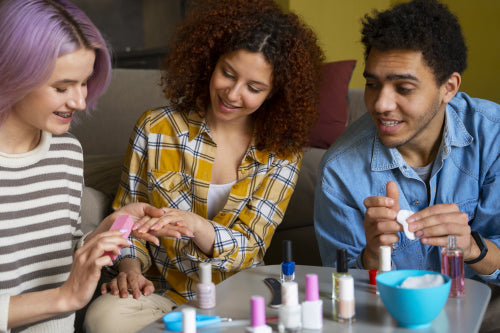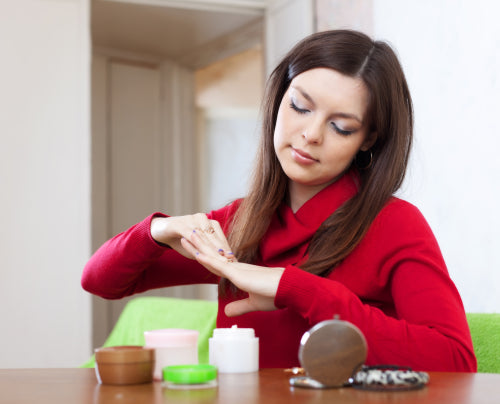How to Address Common Skin Concerns Across All Genders

Skin concerns like dryness, acne, sensitivity, and aging are universal issues that affect people of all genders. While the skincare industry has historically tailored products to specific genders, the reality is that everyone, regardless of gender identity, shares similar skin concerns. Everyone deserves healthy, balanced skin, and the approach to achieving it should be inclusive and focused on personalized care. By understanding the key principles of skincare, becoming aware of the right ingredients, and maintaining a consistent routine, anyone can address common skin concerns effectively.
Understanding Skin and Its Needs
Our skin is the body's largest organ and serves as a protective barrier against external elements like pollutants, bacteria, and the sun's UV rays. The structure of skin is fundamentally the same for all genders, but factors such as hormones, genetics, environment, and lifestyle habits can lead to different concerns at various points in life. For instance, testosterone in men typically leads to oilier skin, while estrogen in women may cause fluctuations in moisture levels, leading to dryness or increased sensitivity.
In the case of non-binary and gender-diverse individuals, skin concerns can vary widely, influenced by both genetic factors and hormonal treatments (such as testosterone or estrogen therapy). Thus, personalized skincare based on individual skin needs is essential, not just a one-size-fits-all solution. No matter who you are, understanding your skin's unique needs is the first step toward achieving healthy, balanced skin.
1. Tackling Dry Skin: Hydration Is Key
Dry skin is a common concern for everyone. Whether you're experiencing it due to environmental factors (such as cold weather or air conditioning) or internal factors like aging, dry skin can lead to irritation, flaking, and redness. While some individuals are naturally prone to dry skin, others may experience it seasonally or as a result of skincare products that strip away natural moisture.
Practical Solutions for Dry Skin:
Use a Gentle Cleanser: Harsh, soap-based cleansers can strip your skin of its natural oils, leading to further dryness. Opt for a mild, hydrating cleanser with ingredients like glycerin or hyaluronic acid, which help to retain moisture while cleaning your skin.
Moisturize Regularly: Hydration is key. Look for a moisturizer that suits your skin type. For dry skin, products that contain humectants (like glycerin or hyaluronic acid), emollients (like ceramides), and occlusives (like shea butter or petrolatum) are ideal. These ingredients draw water into the skin, lock in moisture, and help to restore the skin's barrier.
Add a Humidifier: Dry indoor air can exacerbate skin dryness, especially during winter months. Using a humidifier can help maintain moisture levels in the air, preventing your skin from becoming excessively dry.
Sun Protection: Even though it might seem like the sun is more of an issue for oily skin, UV rays can dry out skin and accelerate aging. Use a broad-spectrum sunscreen with SPF 30 or higher daily to protect your skin from sun-induced dryness.
2. Addressing Acne: The Struggle for Clear Skin
Acne is one of the most common skin concerns, affecting people of all genders at various stages of life. Hormonal changes during puberty, stress, diet, and lifestyle choices are among the primary causes of acne. While men are more prone to experiencing acne well into adulthood due to higher testosterone levels, women may experience breakouts linked to menstrual cycles or pregnancy, and some individuals may experience acne as part of hormone replacement therapy.
Practical Solutions for Acne:
Gentle Exfoliation: Exfoliating the skin helps to remove dead skin cells that can clog pores, leading to acne. However, over-exfoliating can irritate the skin and make acne worse. Use a gentle exfoliant that contains either salicylic acid (a beta-hydroxy acid) or glycolic acid (an alpha-hydroxy acid), both of which help to clear pores and reduce inflammation.
Non-Comedogenic Products: When choosing skincare products, look for the term non-comedogenic, which means that the product won't clog your pores. This is especially important for moisturizers, sunscreens, and makeup products.
Topical Treatments: For active breakouts, consider using topical treatments containing benzoyl peroxide, salicylic acid, or retinoids. These ingredients help to treat acne by reducing oil production, preventing clogged pores, and promoting cell turnover. Be cautious with benzoyl peroxide as it can be drying.
Avoid Touching Your Face: Picking or touching acne-prone areas can transfer bacteria and oils from your hands to your face, worsening breakouts. Make it a habit to avoid touching your face unnecessarily.
3. Sensitivity: Soothe and Restore
Skin sensitivity can manifest as redness, itching, stinging, or a general sense of discomfort. It can be triggered by environmental factors, allergies, or the use of harsh skincare products. Sensitivity is not limited to any gender; it can affect anyone, and it's important to take a gentle, soothing approach to skin care when dealing with sensitive skin.
Practical Solutions for Sensitive Skin:
Choose Fragrance-Free Products: Fragrances in skincare products, while often added for scent, can cause irritation in sensitive skin. Look for products labeled "fragrance-free" or "unscented" to avoid allergic reactions or skin flare-ups.
Hydrate with Aloe Vera or Calendula: Aloe vera and calendula are known for their calming properties. Using a moisturizer that contains these ingredients can soothe irritation and reduce redness.
Patch Test New Products: Before incorporating a new product into your skincare routine, always patch test it on a small area of your skin to check for any adverse reactions. This is especially important for those with sensitive skin.
Avoid Hot Water: Hot water can strip your skin's natural oils and make sensitivity worse. Always cleanse and rinse with lukewarm water to avoid irritating the skin.
4. Aging Gracefully: Embrace Prevention and Repair
Aging is a natural process that affects everyone, regardless of gender. While the visible signs of aging, such as fine lines, wrinkles, and sagging, are more commonly associated with women in media, men and non-binary individuals can experience these changes too. In fact, signs of aging can begin appearing in the 30s for everyone, and it's never too early to start a preventative skincare routine.
Practical Solutions for Aging Skin:
Daily Sunscreen Application: Sun exposure accelerates the signs of aging. UV rays damage collagen and elastin, the proteins that keep skin firm and youthful. Applying sunscreen daily is one of the best ways to prevent premature aging.
Incorporate Retinoids: Retinoids, which include both prescription retinoids and over-the-counter retinol, help to accelerate cell turnover, reduce fine lines, and promote collagen production. Incorporating retinoids into your nightly routine can help repair skin damage and slow down the aging process.
Antioxidants for Protection: Antioxidants such as vitamin C, vitamin E, and green tea extract help to protect the skin from oxidative stress caused by free radicals. These ingredients help to repair skin damage and prevent further aging signs.
Moisturize and Nourish: As skin ages, it produces less oil, leading to dryness. It's important to use richer moisturizers that replenish lost moisture and protect the skin's barrier. Ingredients like peptides, hyaluronic acid, and ceramides are excellent for maintaining hydration and skin elasticity.
Consistency Is Key: Creating a Skincare Routine
Addressing common skin concerns requires consistency. It's important to stick to a skincare routine that suits your skin type and addresses your specific concerns. While products and treatments can work wonders, they need time to show results. Be patient and consistent with your routine, whether it's hydrating your skin, fighting acne, or preventing aging.
A simple skincare routine should include cleansing, moisturizing, and sunscreen. You can add additional steps, like exfoliation or targeted treatments, depending on your needs.
Address Common Skin Concerns
When it comes to skincare, all genders have the same basic skin concerns: dryness, acne, sensitivity, and aging. While the specifics of skin may vary based on hormones or lifestyle factors, the solutions to these concerns are universal. By adopting personalized skincare routines that are consistent and ingredient-aware, everyone can foster healthy, balanced skin. The key to addressing these common skin concerns is not gender-specific treatments but finding what works best for youyour unique skin needs and lifestyle.
You may also be interested in: Tofu Facials: Weird Or Effective? Desavery
Tired of putting harsh chemicals and synthetic ingredients in your skin? Discover the gentle, plant-powered, and cruelty-free skincare routine from Desavery. Meticulously crafted for every skin type, our day-and-night formulas nourish and revitalize, giving your skin a healthy, radiant glow. Join the community of those who've found a natural, effective solution for their skincare needs. Let your glowy skin tell a story of health and natural beauty. Shop Desavery Now!
Powered by flareAI



